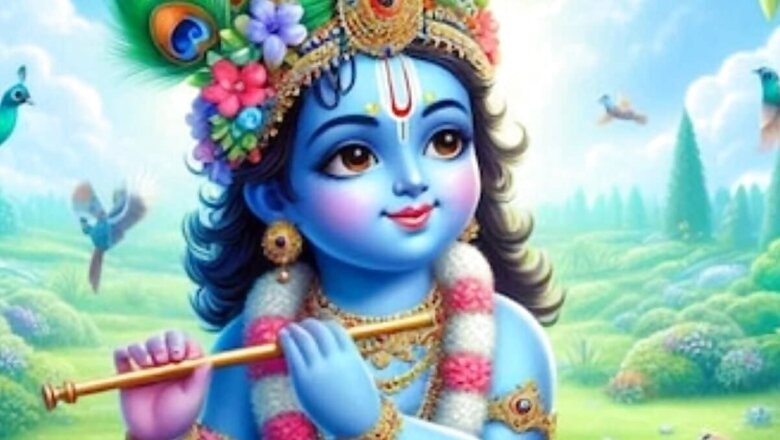
views
The lively and joyous festival of Janmashtami honours the birth of Lord Krishna, the eighth avatar of Vishnu. This auspicious day is celebrated with great enthusiasm and devotion across India and other regions where the Hindu diaspora resides.
In India, there are many different customs and rituals associated with the celebration of Janmashtami. In Mathura and Vrindavan, the birthplaces of Krishna, the celebrations are particularly spirited. Temples are decorated with colourful lights and flowers. People participate in processions, sing devotional songs and perform dramatic interpretations of Krishna’s life.
The elaborate designs and motifs used to decorate houses and temples in honour of Krishna’s life are some of the most fascinating aspects of Janmashtami. Through painting and storytelling, the story of Krishna’s growing up is brought to life. His life of celestial adventures, mischievous pranks and encounters with demons is celebrated with pure devotion.
Krishna Janmashtami 2024: Date and Time
Krishna Janmashtami will be celebrated on Monday, August 26. This auspicious day marks the eighth day (Ashtami) of the dark fortnight (Krishna Paksha) of the Hindu month of Shravana.
The Drikpanchang gives the following timings:
Ashtami Tithi Starts – 03:39 AM on August 26
Ashtami Tithi Ends – 02:19 AM on August 27
Rohini Nakshatra Starts – 03:55 PM on August 26
Rohini Nakshatra Ends – 03:38 PM on Aug 27
Krishna Janmashtami 2024 Shubh Muhurat and Puja Timings
The Drikpanchang mentions the following for the auspicious timings of Shubh Muhurat on Krishna Janmashtami 2024:
Auspicious Timings
Brahma Muhurta
04:27 AM to 05:12 AM
Abhijit
11:57 AM to 12:48 PM
Godhuli Muhurat
06:49 PM to 07:11 PM
Amrit Kalam
01:36 PM to 03:09 PM
Sarvartha Siddhi Yoga
03:55 PM to 05:57 AM
Pratah Sandhya
04:50 AM to 05:56 AM
Vijaya Muhurta
02:31 PM to 03:23 PM
Sayahna Sandhya
06:49 PM to 07:56 PM
Nishita Muhurta
12:01 AM, Aug 27 to 12:45 AM
Krishna Janmashtami 2024 Fasting
Devotees who fast on Krishna Janmashtami usually eat only one meal the day before the festival. The actual fast begins on the day of Janmashtami after the morning rituals are performed. At this time, a formal declaration of intent (Sankalpa) to observe the fast is made.
The fast traditionally ends when both the Ashtami Tithi (eighth lunar day) and Rohini Nakshatra (star constellation) end. However, some devotees choose to break their fast at the end of either day.
The most auspicious time for Krishna Puja is Nishita Kaal, which is midnight in the Vedic calendar.
Janmashtami serves as a reminder of the importance of devotion, compassion and courage. It promotes a sense of community and strengthens bonds between people. The bright colours, melodious music and joyful atmosphere create a magical ambience that uplifts the human spirit.



















Comments
0 comment